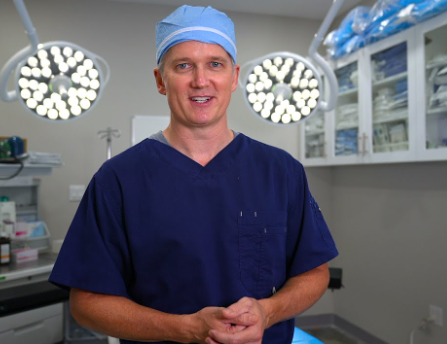
Surgical Innovations: Exploring Dr. Jon Ver Halen’s Impact
Preparing for surgery, regardless of its nature, can be an anxiety-inducing experience for many. However, with thoughtful preparation and understanding, individuals can significantly ease their journey before, during, and after the procedure. Dr Jon Ver Halen, a seasoned surgeon, offers insights into how to effectively prepare for any kind of surgery, ensuring a smoother and more successful recovery.
1. Open Communication: Establish open communication with your healthcare team. Understand the procedure, its risks, benefits, and the expected recovery process. Engage in discussions with your surgeon, ask questions, and voice any concerns you might have. This will help you feel more informed and prepared.
2. Healthy Lifestyle: Prioritize a healthy lifestyle leading up to the surgery. Maintain a balanced diet, engage in regular physical activity as advised by your healthcare provider, and avoid habits like smoking and excessive alcohol intake, which can hinder the healing process.
3. Follow Pre-Operative Instructions: Your surgeon will provide specific pre-operative instructions. Follow them diligently. This might involve dietary restrictions, medication adjustments, or stopping certain medications like blood thinners, as instructed by your healthcare provider.
4. Support System: Build a support system. Inform close family members or friends about your surgery and discuss post-operative needs, such as transportation or assistance with daily tasks during recovery.
5. Prepare Your Home: Before the surgery, make your home recovery-friendly. Arrange necessities, such as comfortable clothing, necessary medications, and items you might need within easy reach.
6. Mental Preparation: Mental preparation is crucial. Practice relaxation techniques or mindfulness exercises to manage anxiety. Positive thinking can contribute significantly to a smoother recovery.
7. Financial Planning: Understand the financial aspects of the surgery. Be clear about insurance coverage, co-pays, and any out-of-pocket expenses. This clarity can alleviate stress post-surgery.
8. Post-Operative Plans: Plan for the post-operative period. Know what to expect in terms of recovery time, restrictions, follow-up appointments, and any necessary rehabilitation or physical therapy.
9. Follow Instructions for Fasting: Dr Jon Ver Halen Adhere strictly to the fasting guidelines provided before the surgery. An empty stomach is crucial for safety during anesthesia.
10. Arrive Early: On the day of the surgery, arrive at the hospital or surgical center early. Follow all instructions provided regarding attire, belongings, and necessary paperwork.
Remember, every surgery is unique, and the preparation process might vary. Trusting your healthcare team and being proactive in your preparations will contribute significantly to a successful surgical experience. Dr Jon Ver Halen emphasizes the importance of a well-prepared and informed patient, as it plays a pivotal role in a smooth recovery and positive surgical outcomes.